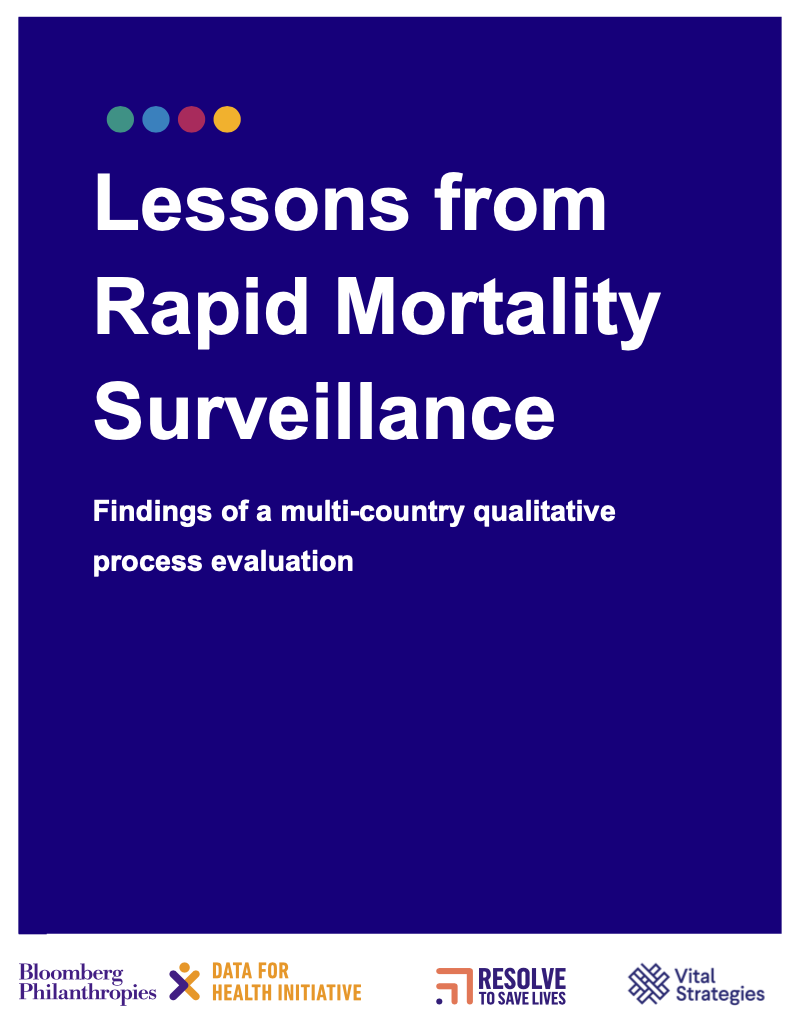This report summarizes local views on the key success factors and barriers to establishing rapid mortality surveillance in 13 countries supported in these efforts by Vital Strategies in the midst of the COVID-19 pandemic. The work was carried out as part of Vital’s Civil Registration and Vital Statistics (CRVS) and Data Impact programs through the Bloomberg Philanthropies Data for Health Initiative and Resolve to Save Lives.
The introduction reviews the problem of tracking the true human toll of the pandemic and the approaches to rapid mortality surveillance employed by participating countries. The purpose and process of the evaluation are also presented, and the and methodology is described.
The results section covers local views on: government ownership and buy-in; data sources and digitization; collaboration and data sharing; integration of mortality surveillance with CRVS systems; and data use.
Recent Abstracts
Opinión pública frente a la política de alcohol: Colombia
Public Attitudes Towards Alcohol Policy: Colombia
2024 Activity Report – Brazil
Estimação do impacto de diferentes cenários de redução do consumo de álcool no…
Estimation of the impact of various scenarios of reduction of alcohol use in…
Relatório de Atividades 2024 – Brasil
The Future of Health Financing in Africa: The Role of Health Taxes
RESET Alcohol Initiative Case Study: Media Campaign Resonates with the Public in Mexico
RESET Alcohol Initiative Case Study: A Historic Win for Alcohol Policy in Brazil
Effects of Heat on Early Childhood Development
